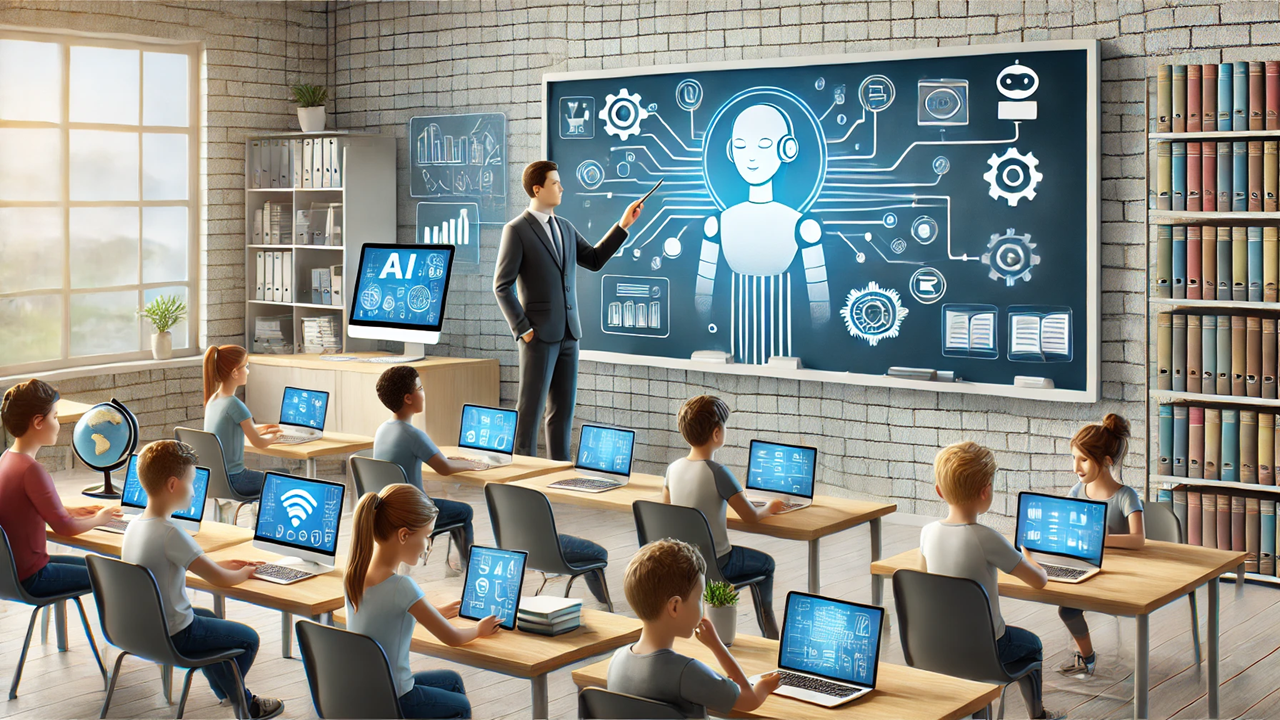AI in the Classroom: Transforming Education in Latin America and the Caribbean
This article explores the transformative impact of AI on education in Latin America and the Caribbean, based on the World Bank report "AI Revolution in Education." It highlights AI-driven innovations for teachers, students, and administration, and discusses the importance of infrastructure investments, teacher training, ethical considerations, and public-private partnerships in ensuring effective AI integration.

In a rapidly evolving world, artificial intelligence (AI) is transforming education like never before. The recent report "AI Revolution in Education" by the World Bank shines a spotlight on the groundbreaking integration of AI in the education systems of Latin America and the Caribbean (LAC). This comprehensive analysis explores how AI is not just a futuristic concept but a present reality reshaping classrooms, enhancing learning experiences, and optimizing educational management.
AI Transforming Education: The New Frontier
AI is making waves in the education sector by offering personalized learning experiences, supporting teachers in innovative ways, and optimizing administrative tasks. The World Bank's report highlights the immense potential of AI to boost productivity and improve educational outcomes. Advanced AI models now engage in complex conversations, generate human-like text, and assist with coding tasks, among other capabilities.
The document outlines nine key AI-driven innovations that are being implemented in the LAC region. These innovations are divided into solutions for teachers, students, and administration, illustrating the comprehensive impact of AI across the educational spectrum.
Empowering Teachers with AI
AI is revolutionizing the teaching profession by providing tools that support educators throughout their careers. In Chile, the program Elige Educar uses AI-powered mentors to offer personalized career guidance and mentoring to both prospective and current teachers. This initiative has shown significant positive effects on teacher recruitment and retention.
Additionally, AI-powered feedback tools like TeachFX analyze classroom discourse and provide targeted professional development insights. This technology helps teachers continuously refine their instructional practices, ultimately leading to more effective teaching.
AI-assisted lesson planning platforms, such as UmmIA in Chile, are enabling teachers to create engaging and standards-aligned lesson plans efficiently. By automating routine administrative tasks, AI frees up teachers' time, allowing them to focus more on teaching and mentoring students.
Enhancing Student Learning with AI
For students, AI offers personalized learning experiences through AI-powered tutoring systems like ALEKS in Ecuador. These systems provide real-time feedback and customized instruction, significantly improving learning outcomes. The use of generative AI tools, such as ChatGPT, is also becoming popular among students for assistance with assignments. However, educators are adapting assessment strategies to ensure responsible use of these technologies.
AI-powered assistants like Uplanner are transforming educational administration by streamlining tasks, optimizing resource allocation, and improving student support. Early warning systems (EWS) powered by AI identify students at risk of dropping out, enabling timely interventions. Centralized assignment mechanisms use AI to optimize teacher and student placements, enhancing efficiency and equity in resource distribution.
Preparing for an AI-driven Future
The successful integration of AI in education requires significant investments in infrastructure, such as high-speed internet and devices, particularly in underserved communities. Comprehensive teacher training programs are essential to equip educators with the skills needed to effectively use AI tools. Ethical considerations, including data privacy and algorithmic bias, must be addressed to ensure responsible AI adoption.
Public-private partnerships play a crucial role in accelerating AI innovation in education. Collaborative research and development, secure data-sharing agreements, streamlined procurement processes, and capacity-building programs are vital components of these partnerships. By leveraging the strengths of both sectors, countries can develop tailored AI solutions that meet the unique needs of their educational systems.
Embracing the AI Revolution
The AI revolution in education presents both immense opportunities and complex challenges. Proactive adaptation is essential to harness AI's transformative potential while addressing ethical considerations and ensuring equitable access. Continuous collaboration among policymakers, educators, researchers, and technology providers is crucial to navigating the complexities of AI integration.
As the LAC region embraces AI in education, the focus must remain on empowering teachers, personalizing learning for students and optimizing administrative processes. By investing in the necessary infrastructure and training, and fostering ethical AI practices, the region can create a future of education that is both highly effective and deeply human-centered.
- FIRST PUBLISHED IN:
- Devdiscourse










